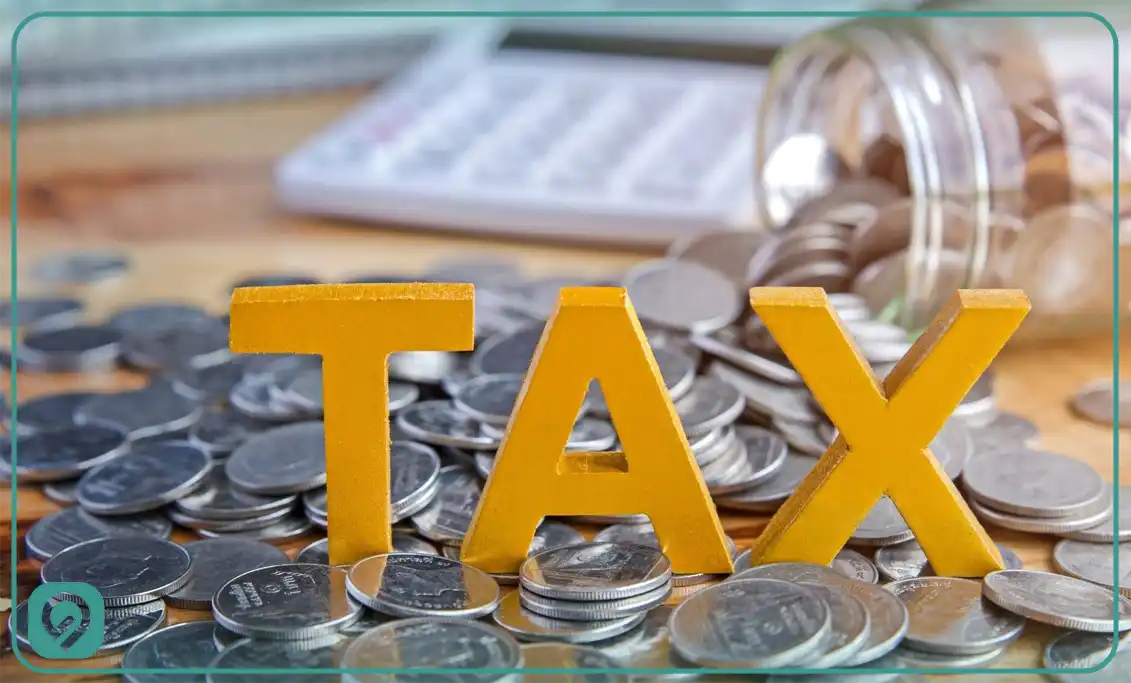Dubai Property Purchase Fees: In-Depth Analysis & Comparisons
We will also discuss the tax system in the UAE and how the real estate sector contributes to the economic growth of the country.

Dubai is considered one of the most developed cities in the world, with a dynamic and diverse real estate market. This development fully reflects Dubai's ambitious vision for the future, as the real estate sector is one of the emirate's most important economic engines. In this article, we will take a look at Dubai Property Purchase Fees: In-Depth Analysis & Comparisons, and we will also discuss the tax system in the UAE and how the real estate sector contributes to the economic growth of the country.
Fees and costs of property purchase taxes in Dubai
- Real estate fees: vary according to the value of the property. For example, if the property value is between AED 500,000 and AED 1,000,000, the registration fee may be around 4% of the property value.
- Value Added Tax (VAT): The VAT rate is 5% of the value added for the real estate services in question. This tax is calculated in UAE dirhams and added to the advance value.
- Real estate agency fees: Generally, agency fees include the real estate agent’s commission. These fees are determined separately and paid to the agent.
- Judicial and lawyer fees: These fees can vary greatly and depend on the need for the services of a lawyer or the legal fees required to implement the deal.
Property moving costs in Dubai
Property transfer in Dubai is the process of transferring ownership of a property from one owner to another. This process involves specific costs and fees that are a set of items that the buyer and seller must be aware of. Here is a list of the main costs related to moving property in Dubai :
- 4% ownership transfer fee: These fees include real estate ownership transfer fees and other government fees. This fee is calculated at 4% of the total property value. The buyer and seller must split these fees equally unless a different distribution is negotiated.
- Application fee (500 AED): The buyer must pay the application fee to submit the required documents for transportation.
- Appraisal fee (500 AED): The buyer must pay the appraisal fee to have the property value estimated by a certified appraiser.
- Property Registration Fee (Re-Registration): If the property is already registered, the buyer will have to pay the property registration fee to re-register it in their name. These fees depend on the value of the property.
- Government office fees (variable): There may be additional fees for government offices such as the Land Department or the Real Estate Regulatory Authority. These fees change based on the services provided.
- Real estate agency fees (broker commission): If using a real estate agent, the buyer and seller must pay a commission to the agent. The commission rate varies according to the agent and the services provided.
- Attorney and legal costs (variable): In some cases, there may be attorney and legal costs related to the real estate transfer deal.
It is important to consider these costs and fees when buying or selling property in Dubai. The buyer and seller must communicate with the competent authorities and competent lawyers to ensure compliance with all applicable laws and regulations.
Foreigners' Guide For Buying Real Estate in UAE
The UAE has real estate ownership laws and policies that allow foreign residents to purchase and own real estate.
Tax system in the Emirates
The UAE adopts a semi-universal local tax system that includes a 5% value-added tax (VAT). VAT was implemented in the UAE in January 2018 with the aim of providing additional revenue sources and enhancing economic sustainability. The tax system is simple and transparent and includes full compliance with VAT regulations and regular reporting.
Competitiveness of the tax system in the UAE globally :
The UAE's tax system is competitive both regionally and internationally. The UAE has a low VAT rate and no income taxes, making it an attractive destination for international investors. This commercial environment enhances the economic attractiveness of the country and increases its attractiveness for investment.
Tax exemptions in Dubai
In the Emirate of Dubai, residents and companies are granted many tax exemptions, making it one of the most attractive destinations for investors and residents both nationally and internationally. Here are some of the main exemptions :
- No income tax: In Dubai, there is no income tax on individuals or companies. This means that residents and businesses can benefit from their entire income without a tax deduction.
- No property tax: There is no real estate tax on property in Dubai, which means there are no annual costs associated with property ownership.
- No inheritance or gift tax: In Dubai, there is no inheritance or gift tax, which facilitates the transfer of wealth from one generation to another without tax costs.
- Low value-added tax: Although there is a value-added tax (VAT) of 5% in the UAE, this percentage is low compared to many other countries.
Tax comparison table with some European countries
To clarify, let us provide a comparison table of taxes between Dubai and some European countries such as France, Greece, Italy, Germany, and the United Kingdom. Individuals and companies should take this data into account when making their decisions about comparison with a particular country.
| Tax | Dubai | United Kingdom | Germany | Italy | France | Greece |
| Income tax | 0% | 45% | 47.5% | 43% | 45% | 44% |
| property tax | 0% | 0.48% | 0.35% | 0.76% | 1.1% | 3.09% |
| Inheritance tax | 0% | 40% | 30% | 0.6% | 45% | 1% |
Economic growth and contribution of the real estate sector
Over the past decade, the UAE has witnessed exceptional economic growth. The real estate sector contributes greatly to achieving this success. The real estate sector constitutes a large part of the UAE economy, playing a crucial role in promoting economic sustainability and attracting investments. Real estate in Dubai is one of the most attractive destinations for international investors, as the real estate sector contributes significantly to achieving economic peak.
In conclusion, buyers and investors should carefully handle the fees and taxes associated with purchasing property in Dubai. Although there are some costs associated with real estate transactions, the competitive tax regime and strong economic growth make Dubai an exciting and attractive investment place for buyers and investors.
Edited by Deal Real Estate ©
Have Question Or Suggestion ?
Please Share Your Thought, To Make It Real
.webp)
.webp)
.webp)

.webp)

.webp)
.webp)
.webp)


